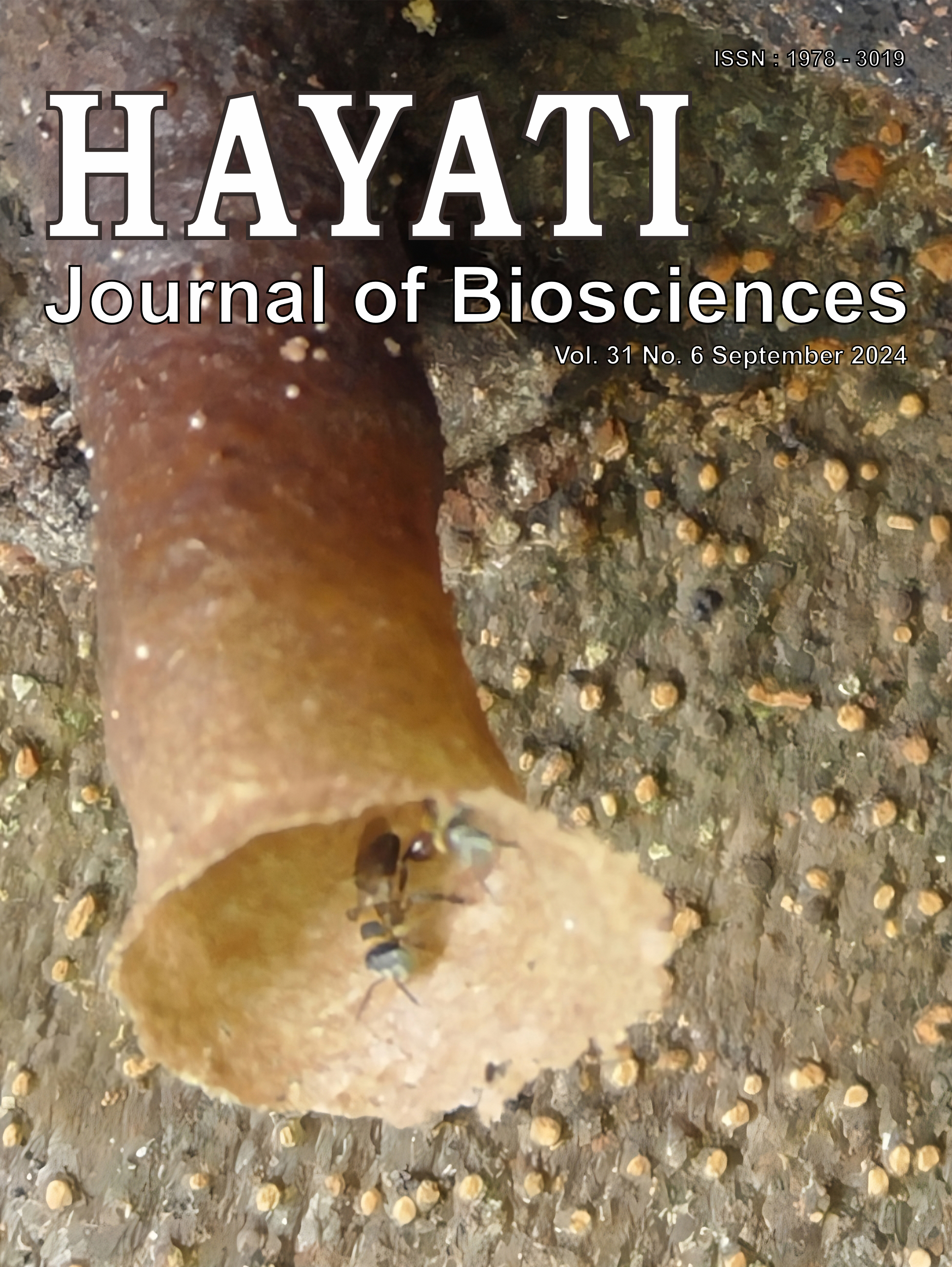Comparing Effectiveness of Hand Pollination, Wild Insects and Local Stingless Bees (Tetragonula laeviceps) for Pollination of Exotic Mauritius Raspberry (Rubus rosifolius)
Abstract
Mauritius raspberry (Rubus rosifolius) is an exotic plant cultivated in Indonesia. Studies showed that the productivity of exotic plants is reducing due to a lack of pollination agent for their origin region. Several methods could be applied to overcome this problem. The study aimed to find the most effective method for pollinating this plant among four pollination regimes: Self-pollination, wild insects, stingless bees (Tetragonula laeviceps), and hand-pollination. The observation was conducted on the insect pollinators' activities (visitation rate, flower constancy, and flower handling time), pollination efficiency, and quality of the fruits produced (fruit volume). The results showed a higher visitation rate (10 to 70 per hour), higher flower constancy (visited from 07.00 to 16.00), and longer flower handling time (13.6 s) of T. laeviceps on raspberry flowers than other insects. High activities related to better raspberry pollination success (96%) and bigger fruits produced. Based on this study, applying stingless bees as pollination agents for exotic plants was the best and potentially applicable to other exotic crops.
Downloads
Copyright (c) 2024 Ramadhani Putra, Rezha Tanu Dewangga, Endang Hermawan, Ida Kinasih, Rika Raffiudin, RC Hidayat Soesilohadi, Hery Purnobasuki

This work is licensed under a Creative Commons Attribution-NonCommercial 4.0 International License.
HAYATI J Biosci is an open access journal and the article's license is CC-BY-NC. This license lets others distribute, remix, tweak, and build upon author's work, as long as they credit the original creation. Authors retain copyright and grant the journal/publisher non exclusive publishing rights with the work simultaneously licensed under a https://creativecommons.org/

























.png) IPB University
IPB University Department of Biology
Department of Biology The Indonesian Biological Society
The Indonesian Biological Society 

